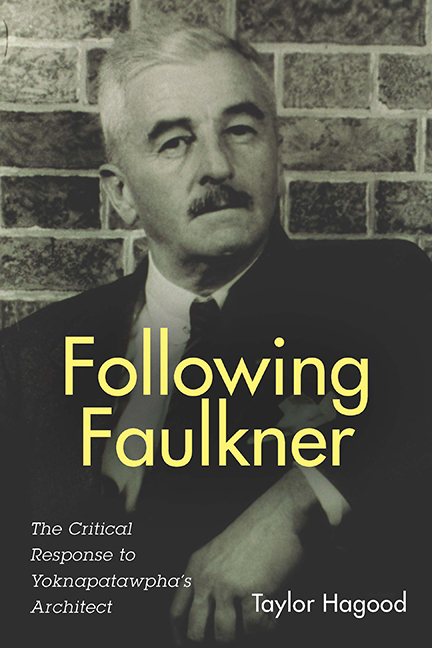Summary
This book offers a road map to Faulkner criticism, and to that end it strives to accomplish two goals. First, it seeks to record the historical development of the critical conversation on Faulkner. It does so not only by presenting writing on Faulkner chronologically but also by contextualizing it in the larger field of literary criticism. Scholarly discourse advances with the progress of intellectual movements, so attention will be given to those movements and the ways they both illuminate and appropriate Faulkner's writing. The reader will notice a persistent reciprocal relationship between Faulkner and literary critical movements in that they mutually affirm and inform one another. Often when new modes of criticism arise critics look to test them on Faulkner's writing, which in turn bolsters his critical caché. It is partly because scholars so often test their theories on his work that it continues to be so prominent, while at the same time theories gain prominence by engaging Faulkner.
The second goal is to orient new scholars in ways that help them contribute to Faulkner studies in meaningful ways. As with any conversation, the Faulkner scholarly discussion demands not secret handshakes exactly but definitely an awareness of what to say and how to say it. Very often undergraduates and graduate students, and sometimes even professional scholars new to the field, have no way of evaluating the scholarship they encounter. Few things mark a fledgling as quickly as the lack of awareness of which arguments have already been made. While current and future scholars may revisit old arguments, they must be aware of and address their contexts; if a scholar quotes a New Critic such as Cleanth Brooks without showing an awareness of that quote's context vis-à-vis the current one, the scholar's credibility could be compromised. Thus, this book offers historicized descriptions of the critical approaches to Faulkner with comment on the ways scholars tend to view them in the current critical climate. Understanding these viewpoints can help a scholar forge new directions in Faulkner studies. Hopefully this book will also be useful in teaching, giving a ready reference for students writing papers on a muchdiscussed and difficult author. This book cannot substitute for reading the books and articles on Faulkner themselves. Rather, it provides a narrative that operates on three levels.
- Type
- Chapter
- Information
- Following FaulknerThe Critical Response to Yoknapatawpha's Architect, pp. 1 - 5Publisher: Boydell & BrewerPrint publication year: 2017



